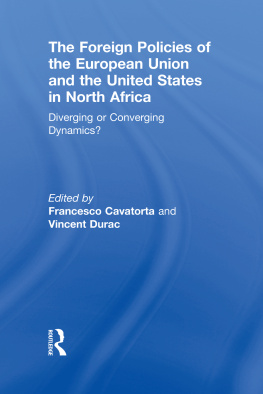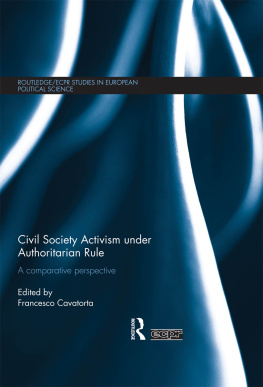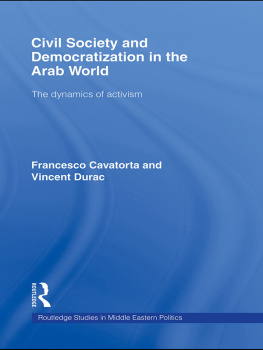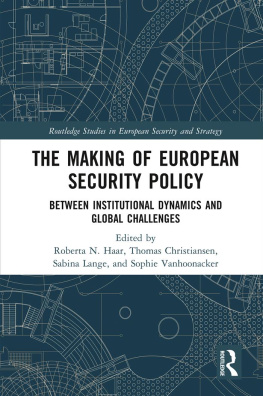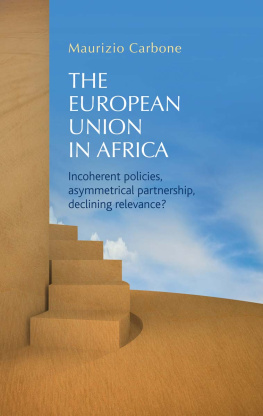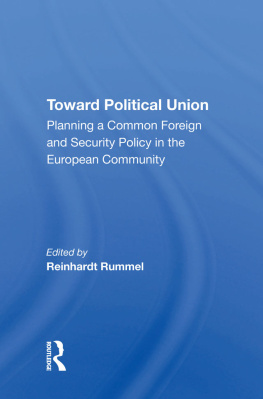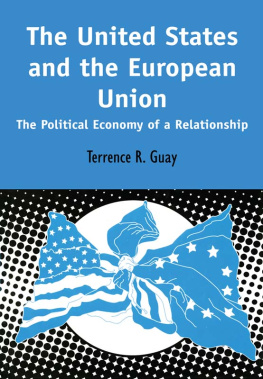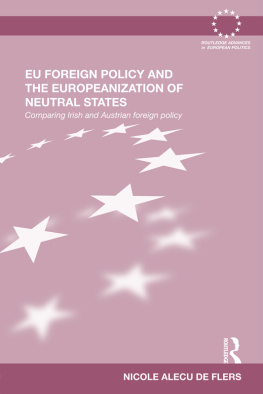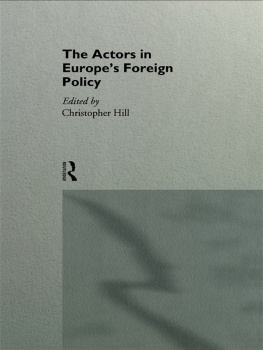The Foreign Policies of the European Union and the United States in North Africa
The war in Iraq seemed to bring to a head underlying differences between the United States and the vast majority of European countries regarding the best means to maintain international peace and stability. The unilateralism of the United States as opposed to the multilateralism of the European Union is seen as a very significant source of potential rivalry between the two actors.
This volume examines in detail whether the policies of the United States and the EU are truly diverging with respect to the most pressing issues facing North Africa, or whether, in fact, they are converging in terms of objectives to be achieved and strategies for their implementation. Through a number of papers that include both comparative and case specific studies, this book enables a better understanding of the differences and similarities in EU and US foreign policies and security strategies for the region, a clearer analysis of their respective democracy promotion policies, and a more effective examination of their respective approach to the Islamist question in light of the continued success of such movements.
This book was originally published as a special issue of the Journal of North African Studies .
Francesco Cavatorta is Lecturer in International Relations and Middle East Politics at the School of Law and Government, Dublin City University.
Vincent Durac is Lecturer in Politics of Development and Middle East Politics at the School of Politics and International Relations, University College Dublin.
The Foreign Policies of the European Union and the United States in North Africa
Diverging or Converging Dynamics?
Edited by Francesco Cavatorta and Vincent Durac
First published 2010
by Routledge
2 Park Square, Milton Park, Abingdon, Oxon, OX14 4RN
Simultaneously published in the USA and Canada
by Routledge
711 Third Avenue, New York, NY 10017
Routledge is an imprint of the Taylor & Francis Group, an informa business
2010 Taylor & Francis
Typeset in Times by Value Chain, India
All rights reserved. No part of this book may be reprinted or reproduced or utilised in any form or by any electronic, mechanical, or other means, now known or hereafter invented, including photocopying and recording, or in any information storage or retrieval system, without permission in writing from the publishers.
British Library Cataloguing in Publication Data
A catalogue record for this book is available from the British Library
ISBN10: 0-415-48337-9
ISBN13: 978-0-415-48337-7
Contents
| Diverging or converging dynamics? EU and US policies in North Africa - an introduction |
| Francesco Cavatorta and Vincent Durac |
| Patrick Holden |
| Hakim Darbouche and Yahia H. Zoubir |
| Brieg Tomos Powel |
| Vincent Durac |
| Sami Zemni and Koenraad Bogaert |
| Miquel Pellicer and Eva Wegner |
Diverging or converging dynamics? EU and US policies in North Africa an introduction
Francesco Cavatorta and Vincent Durac
According to a number of scholars of international relations, the transatlantic relationship is going through a very significant and possibly irreversible crisis. It is claimed that the different reactions of the United States and the European Union to both September 11th and the war in Iraq were the catalyst for a rift that had been deepening for some time, leading to competition between the two actors. The literature on the foreign policy of the US and the EU in the Middle East and North Africa also points to this rift in order to explain the seemingly contradictory policies that the two actors implement in the region, with the US being more forceful in its attempts to export democracy and in supporting Israel while the EU adopts a less confrontational attitude and is perceived to be more friendly to the Palestinians. This article, which introduces a special issue on the nature of US and EU foreign policies in North Africa, argues on the contrary that the transatlantic rift does not really exist. While there are certainly differences in discourse and policies, both the EU and the US share the same concerns and have similar strategic objectives in the region, leading the two actors towards cooperation and division of labour rather than confrontation.
Security, power or profit? The economic diplomacy of the US and the EU in North Africa
Patrick Holden
The United States and the European Union have an extensive set of economic instruments to help reform the economic institutions of North African countries. These are allegedly motivated by security concerns. In theory a more liberal and integrated economic framework will allow for greater development, cohesion and stability. This is based on a general consensus that economic stagnation is a major cause of extremism in the region. The economic dimension of US diplomacy involves an essentially bilateral push for free trade agreements and several aid instruments. EU policies have a similar thrust but its deeper interdependence with North Africa leads to a more holistic approach. These different emphases relate to the complex dynamics of competition and cooperation evident in USEU relations more generally. Although an alliance, the USEU partnership involves competition for structural power in the global political economy. Does the element of competition significantly affect the overall unity of their approach to the region? Empirical study bears out the hypothesis of competition for structural power but there are striking commonalities in their globalising and liberalising agendas. There are also substantial similarities in another sense; self-interest considerations distort the reform and development project. In relation to the broader strategic role of both actors it is concluded that the limited element of competition does not amount to geo-political rivalry at this stage. All of this implies that neither actor is likely to have a transformative impact on the institutions of the region. Their main focus is in limited commercial reforms which regime elites will be able to control and manipulate.
The Algerian crisis in European and US foreign policies: a hindsight analysis
Hakim Darbouche and Yahia H. Zoubir
Algerias process of political liberalisation in the late 1980s failed to produce genuine transition to democracy. Instead, the country experienced a dreadful decade-long crisis, which besides affecting its societal development, had wider domestic and international repercussions. Despite the attention it drew, deep understanding of the drama failed to prevail. The reactions the crisis induced in Europe and the United States were informed by different strategic and normative considerations. The purpose of this article is to compare these transatlantic responses in order to shed light on their underlying dynamics and to attempt to provide enough empirical basis from which to extrapolate in the assessment of broader US and European democracy promotion efforts in the MENA region.
The stability syndrome: US and EU democracy promotion in Tunisia
Brieg Tomos Powel
Despite very public disagreements over Iraq and other areas of the Middle East and North Africa, European Union (EU) and United States (US) strategies in the region offer much scope for cooperation. Both actors have stressed the potential of democracy to prevent conflict. The USs Middle East Partnership Initiative (MEPI), Broader Middle East and North Africa (BMENA) Partnership Initiative, and the EUs Euro-Mediterranean Partnership (EMP) and European Neighbourhood Policy (ENP) all emphasise the need for democratic reform in Middle Eastern states. Tunisia has been included in all of these initiatives, often voluntarily, and has consequently become a subject of their drive for political reform. Yet despite a lack of progress in political reform, the US and the EU seem reluctant to place any great pressure on Tunisia to conform to the demands of the policy initiatives. In fact, by including Tunisia within wider regional frameworks, both the US and the EU have shifted their focus to maintaining stability through the status quo rather than risk the unpredictable outcomes of political reform.


